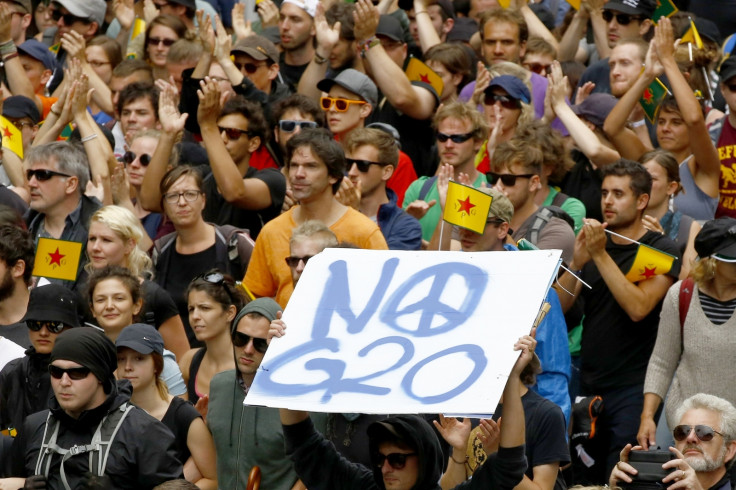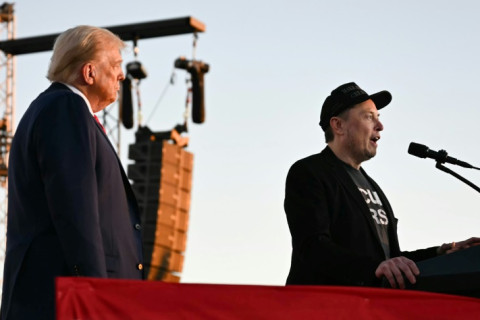Why has free trade stopped being a left-wing cause?
200 years after David Ricardo, why are people still misunderstanding free trade's virtues?

The further you go from Brussels, the likelier people are to see Brexit in terms of opportunities rather than obstacles. Many in the EU, understandably enough, feel hurt by Britain's withdrawal. Some resent it, others approach it in terms of damage limitation, but few muster any enthusiasm for it. Across the oceans, it's a different story.
This week, the Institute for Free Trade, of which I'm president, organised a conference to mark the bicentenary of David Ricardo's idea of comparative advantage – a mind-blowing exercise in logic that demonstrates why free trade is always in the interests of the countries that practice it, however unproductive they are compared to their commercial partners. The speakers came from around the world, and saw Brexit as a chance to galvanise the global trading system.
Deirdre McCloskey of the University of Illinois explained that the problem with comparative advantage lay with the word "advantage", which made people think that it was about outperforming rivals. Really it is about optimising co-operation. She gave the example of 12-year-old Oliver helping his mother spring-clean the house. Mum can do everything better than Oliver: sweep the garage, polish the furniture, change the lightbulbs. But it still makes sense for Oliver to sweep the garage, freeing her up to do the tasks where she has greater comparative advantage.
We can all see how that principle applies within families or companies or sports teams. But we struggle with the idea that, by precisely the same logic, it might make sense for Britain to import textiles from Bangladesh even if it could produce them more efficiently at home. Insisting on manufacturing our own textiles is equivalent to mum insisting on sweeping the garage while Oliver does nothing.
Mark Perry, of the American Enterprise Institute and the University of Michigan, described the eternal problem with free trade: that however much it enriches the countries that practice it, the riches are asymmetrically distributed. The winners are many, but are largely ignorant of the cause; the losers are few, but know exactly whom to blame, and vote accordingly.
Jorge Quiroga, the former President of Bolivia, called for a big country to lead the world to liberalisation. Since there were protectionist tendencies in both Washington and Brussels, he said, it was for Britain to resume that historic role.
Alexander Downer, the Australian High Commissioner and former foreign minister, told us to cheer up. If Britain genuinely wanted free trade, he said, the deals would be easy: it had taken Australia only 15 months to sign an agreement with the United States, because it hadn't tried to carve exemptions out. "Name a free-trading country that isn't rich or getting rich," he challenged the audience.
That audience was made up largely of civil servants and trade negotiators from Britain and abroad, plus a sprinkling of politicians including three cabinet ministers. Precisely the people, in other words, who have it in their power to add gazillions to world output simply by removing the barriers that governments have put in place. As David Ricardo put it himself in one of his speeches to Parliament, governments can do moderate good, but great mischief.
That night, we visited Gatcombe Park, the gorgeous Gloucestershire estate where Ricardo conceived his counter-intuitive thesis, now the home of the Princess Royal. We saw Ricardo's papers and read some of his letters: he comes across as a popular, likeable, clever, witty and thoughtful man.
He was also, by the standards of his time, a radical. He campaigned against slavery, sought to bring the perpetrators of the Peterloo Massacre to justice and supported liberal and democratic risings around Europe.
No one gains more from distortions of trade than powerful lobby groups
How astonished he would be, if he could be transported to our own age, to see that progressives have now turned against free trade, once the ultimate progressive crusade. How bizarre he would find the sight of idealistic young Leftists marching against G20 meetings, protesting trade deals, occupying stock exchanges, thinking that they are somehow standing up for the poor against big multinationals. As Ricardo well understood, no one gains more from distortions of trade than powerful lobby groups, and no one gains more from their dismantling than the most vulnerable people on the planet.
In Ricardo's day, protectionism was seen for what it was: a way to transfer wealth from the poor to the rich. Today, we have an extra 200 years of evidence proving that point. Would you rather be poor in North Korea or South Korea? And yet, against all apparent reason, free trade continues to be howled down as something exploitative. There has even, Liam Fox told us on the basis of new polling data, been a swing against free trade from some Remain voters who previously backed the idea, but now associate global trade with Brexit.
Free trade is what lifted us above the run of nations and, in the process, lifted others. It is one of those delightful things – along with smiles and kisses – that enriches both parties. It is time we recovered our global vocation.
© Copyright IBTimes 2024. All rights reserved.







